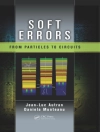BIODIESEL
This outstanding new volume provides a comprehensive overview on biodiesel technologies, covering a broad range of topics and practical applications, edited by one of the most well-respected and prolific engineers in the world and his team.
Energy technologies have attracted great attention due to the fast development of sustainable energy. Biodiesel technologies have been identified as the sustainable route through which overdependence on fossil fuels can be reduced. Biodiesel has played a key role in handling the growing challenge of a global climate change policy. Biodiesel is defined as the monoalkyl esters of vegetable oils or animal fats. Biodiesel is a cost-effective, renewable, and sustainable fuel that can be made from vegetable oils and animal fats. Compared to petroleum-based diesel, biodiesel would offer a non-toxicity, biodegradability, improved air quality and positive impact on the environment, energy security, safe-to-handle, store and transport and so on. Biodiesels have been used as a replacement of petroleum diesel in transport vehicles, heavy-duty trucks, locomotives, heat oils, hydrogen production, electricity generators, agriculture, mining, construction, and forestry equipment.
This book describes a comprehensive overview, covering a broad range of topics on biodiesel technologies and allied applications. Chapters cover history, properties, resources, fabrication methods, parameters, formulations, reactors, catalysis, transformations, analysis, in situ spectroscopies, key issues and applications of biodiesel technology. It also includes biodiesel methods, extraction strategies, biowaste utilization, oleochemical resources, non-edible feedstocks, heterogeneous catalysts, patents, and case-studies. Progress, challenges, future directions, and state-of-the-art biodiesel commercial technologies are discussed in detail. This book is an invaluable resource guide for professionals, faculty, students, chemical engineers, biotechnologists, and environmentalists in these research and development areas.
This outstanding new volume:
* Summarizes the recent developments in this rapidly-developing, multi-disciplinary field
* Provides the reader with a practical understanding of biodiesel technology toward the real-world applications
* Formulates concepts, case-studies, patents, and applications helpful in decision making and problem-solving, in a single resource
* Delivers state-of-the-art information on biodiesel technology
Audience: Chemical and process engineers and other professionals, faculty, students, scientists, biotechnologists, and environmental engineers
Over de auteur
Inamuddin, Ph D, is an assistant professor at the Department of Applied Chemistry, Zakir Husain College of Engineering and Technology, Faculty of Engineering and Technology, Aligarh Muslim University, Aligarh, India. He has extensive research experience in analytical chemistry, materials chemistry, electrochemistry, renewable energy, and environmental science. He has worked on different research projects funded by various government agencies and universities and is the recipient of multiple awards, including the Fast Track Young Scientist Award and the Young Researcher of the Year Award for 2020, from Aligarh Muslim University. He has published almost 200 research articles in various international scientific journals, 18 book chapters, and 120 edited books with multiple well-known publishers.
Mohd Imran Ahamed, Ph D, is a research associate in the Department of Chemistry, Aligarh Muslim University, Aligarh, India. He has published several research and review articles in various international scientific journals and has co-edited multiple books. His research work includes ion-exchange chromatography, wastewater treatment, and analysis, bending actuator and electrospinning.
Rajender Boddula, Ph D, is currently working for the Chinese Academy of Sciences President’s International Fellowship Initiative (CAS-PIFI) at the National Center for Nanoscience and Technology (NCNST, Beijing). His academic honors include multiple fellowships and scholarships, and he has published many scientific articles in international peer-reviewed journals. He is also serving as an editorial board member and a referee for several reputed international peer-reviewed journals. He has published edited books with numerous publishers and has authored over twenty book chapters.
Mashallah Rezakazemi, Ph D, received his doctorate from the University of Tehran (UT) in 2015. In his first appointment, he served as associate professor in the Faculty of Chemical and Materials Engineering at Shahrood University of Technology. He has co-authored in more than 140 highly cited journal publications, conference articles and book chapters. He has received numerous major awards and grants from various funding agencies in recognition of his research. Notable among these are Khwarizmi Youth Award from the Iranian Research Organization for Science and Technology (IROST), and the Outstanding Young Researcher Award in Chemical Engineering from the Academy of Sciences of Iran. He was named a top 1% most Highly Cited Researcher by Web of Science (ESI).












